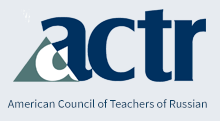Russian Language Journal
Keywords
language flagship, multilingualism, study abroad, less commonly taught languages, Kazakhstan
Abstract
The relocation of the overseas Arabic and Russian Language Flagship programs to Morocco and Kazakhstan created challenges and also opportunities for advanced students of Arabic and Russian to develop greater intercultural understanding as they negotiate the cultural underpinnings of these multilingual environments. These students will bring in more nuanced understanding of complex international environments as they move into positions in government or other international fields. The Language Flagship program is designed to meet the need for professional language proficiency and intercultural skill in federal service. In both Morocco and Kazakhstan, the local language is undergoing revitalization while the post-colonial language still serves as a language of science and education. In Morocco the local dialect of Arabic is considered marginal in the Arab world, and Flagship students now learn both Moroccan and Egyptian dialects. Russian Flagship students are now learning basic Kazakh along with advanced Russian. The homestay environments in particular are a space in which family and intergenerational dynamics demand nuanced understanding of ethnic and cultural sensitivities. The multicultural dynamics can be especially challenging for US heritage Russian learners in Kazakhstan. The complexities of the trend toward Kazakhization within an ideology of multilingualism to promote interethnic peace and stability necessitate the introduction of basic Kazakh into the curriculum for the advanced US students of Russian in Almaty in order for them to succeed in a changing multicultural environment.
Recommended Citation
Eisen, Samuel
(2020)
"The Language Flagship Program and Multilingualism in Overseas Language Immersion,"
Russian Language Journal: Vol. 70:
Iss.
1, Article 2.
Available at:
https://scholarsarchive.byu.edu/rlj/vol70/iss1/2

